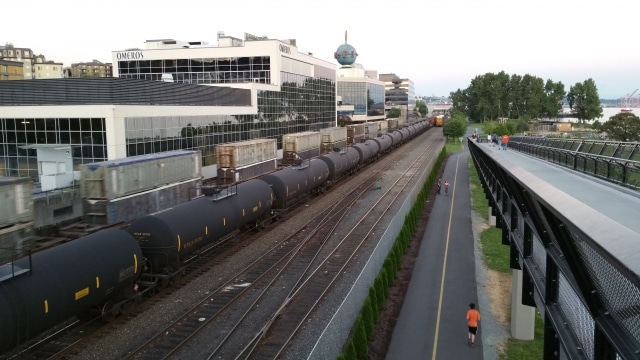Following up on several recent articles and a video explaining how the risks of Bakken oil “bomb trains” will continue to endanger communities across North America for years to come despite new regulations, DeSmog contributor Justin Mikulka recently appeared on Ring of Fire on Free Speech TV.
In a conversation with host Farron Cousins (a DeSmog contributor since 2011), Mikulka cites the recent revelations of ExxonMobil’s extensive and accurate climate research — followed by decades of attacking that same science — as evidence of the oil industry’s willingness to deny science in the pursuit of profit.
The discussion focuses on how the exact same thing is happening with the rail shipment of volatile crude oil, and how the oil industry has found a willing partner to challenge the science of crude oil in the Department of Energy.
Watch the Ring of Fire segment:
Image credit: Oil train rolling through Seattle, by Brendan DeMelle
Subscribe to our newsletter
Stay up to date with DeSmog news and alerts







